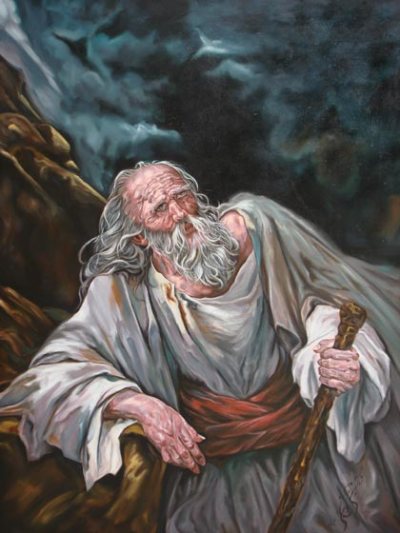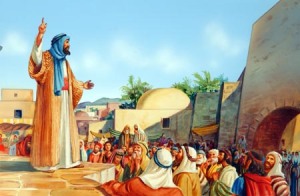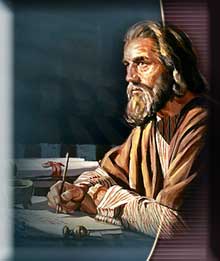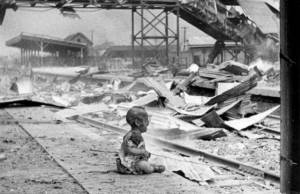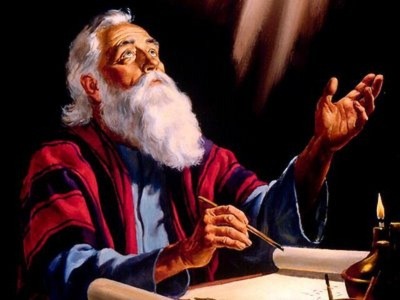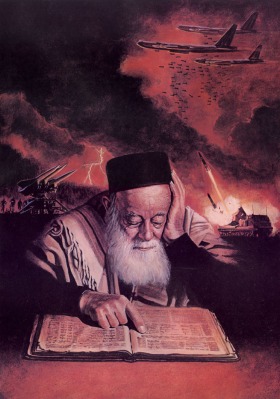Isaiah 9:8 – 10:4. (Prefaced by Isaiah 5:25)
Introduction: 5:25. God is angry, yet still offers grace. “For all this his anger is not turned away, yet his hand is stretched out still.” (5:25b)
Point 1: 9:8-12. Arrogance and Incursion. Defiance against God’s hand. “For all this his anger is not turned away, yet his hand is stretched out still.” (9:12b)
Point 2: 9:13-17. Impenitence and Confusion. Defiance in the lack of leaders. “For all this his anger is not turned away, yet his hand is stretched out still.” (9:17b)
Point 3: 9:18-21. Anarchy and Cannibalism. The horror of civil war. “For all this his anger is not turned away, yet his hand is stretched out still.” (9:21b)
Point 4: 10:1-4. Apathy and Corruption. The unjust Justice System. “For all this his anger is not turned away, yet his hand is stretched out still.” (10:4b)
In The Message paraphrase, Isaiah 5:25 states: “That’s why God flamed out in anger against his people, reached out and knocked them down. The mountains trembled as their dead bodies piled up in the streets. But even after that, he was still angry, his fist still raised, ready to hit them again.”
This verse is saying, in modern street language, “God is so angry with the Jews generally that He stretched his hand and shook the mountains until the bodies were piled high in the streets.”
This sentence was written during King Uzziah’s reign and is therefore probably referring to the earthquake that took place whilst Uzziah was king. But the end of the verse is significant. I paraphrase again. “But even though that showed you clearly how angry God is, He is still angry and has his hand outstretched to show that anger even more.” This statement is clearly stating that Judah and Jerusalem, and inclusive of the Northern Kingdom of Israel, had spiritually descended to a place where a turnabout is difficult and for Israel even, impossible.
The weight of the sin of the descendants of Abraham, Isaac and Jacob had aroused God’s anger far beyond their understanding. “God has judged you! But don’t hold your breath, because the judgment is not finished.” In this introductory first use of the phrase, “for all this his anger is not turned away, yet his hand is stretched out still,” the response of the people to the judgment is not even referred to, as if it was irrelevant. Perhaps they were numbed by the severity of the outstretched hand of Yahweh in the earthquake in the days of Uzziah.
It was later, in the reign of Ahaz when Isaiah continued his prophetic word around the repeated phrase noted above. It is the fourfold repetition of the statement and the quadrupled rationale behind the phrase being made that heightens the reasoning behind it being pressed home to Judah and Jerusalem.
Judah’s descent into a Yahwehless religiosity, and their failure to see God’s hand at work in the national catastrophe’s that were happening was the cause of Isaiah’s grief and heartache. Having had a glimpse of the glories of Messiah, Isaiah now has to behold the animalistic thinking of the generation of which he was a part. After ascending into glory with the most wonderful and stupendous vision of who and what Messiah would be, and how, to a certain degree, He will operate when He comes, what follows is a bit of an anti-climax. We must, however, make it clear before we proceed that the anti-climax is just as divine, inspired and infallible as those insights that hit the spiritual top “C” from 9:1 through to 9:7. We then arrive at a presentation of a very systematic form of what was the miserable present in Jerusalem and Judah (not forgetting the northern kingdom of Israel.).
Isaiah is telling us clearly that Messiah is greater and more glorious than anything people can imagine. He will sort out the entire cosmos with all its issues. Look to the future – yes! But remember to sort out your present now, because that will be answered for in the very presence of Yahweh at the final judgement looking into His eyes, and when we get there, whether it is Christians at the Judgement Seat of Christ or the unsaved at the Great White Throne Judgement, we will all stand totally alone. That concept will delight some and horrify others.
The point of what I am calling “A Four Point Sermon” by Isaiah, is that it is simply a morose, yet constructive lament against the futile activities of a Godless generation that responds negatively and sinfully to God all along their pathway of life. God and Isaiah were just not being listened to. God is doing everything He can to reach these people by circumstance and word, yet all the people of Judah and Israel seem to do is ignore God and defy His grace towards them. It is an attitude that strangely parallels the western world in the twenty first century AD. They deny God, His word, His purposes and plans for them and simply have a secular rationale for everything and a world view where God, as such, just does not exist.
This frame of mind was driving the people down a slippery slope of evil and Godlessness. Everything the nation and the king was doing seemed to hasten the downward slide to hell. If it is true that all things work together for good to those that love God, to those who are the called according to his purpose, surely it is true that all things work together for bad to those who hate God having rejected the call according to His purpose. I am sure there will be some readers who think that, “The love of God reaches to the worst of sinners. So! How can I even think such things?”
The truth is, as I see it, that persistence in sin and evil, simply takes a person down and down, with every sinful movement they make and bad decision they take. Such an individual is more and more bound by evil, restricted by guilt, and demonically entangled in some kind of devil’s trap the more they settle in the slime of evil. Have no doubt about it, however, the very moment a human soul stops to consider his standing before God, the love of God is ever active towards that person; but without reflection, repentance or a reverent turning to God, the glorious and wonderful truth contained in the words of Romans 8:28 are utterly reversed for the non repentant defiant sinner. Whatever they are doing in the present in their refusal to listen to God via Isaiah will actually condemn them in their final judgement. By this perspective they are truly living under the shadow of a reversed Romans 8:28.
All things evil are in on the conspiracy plotting against those who plough on with their sin against God. Be it demons, negative circumstances, sickness, death, hell, the grave and spiritual interference with the whole baggage of life. Every decision that defies God’s word, be it against the generic Logos in the scriptures, or the personal Rhima spoken by preacher and/or prophet damns and dooms the persistent non repentant perpetrator of evil. There are histories and declared words in the bible that make it clear that what I am saying is absolutely true. God is on everybody’s case. But he needs the hearts of people. Psalm 9:17 says “The wicked shall be turned into hell, And all the nations that forget God.” We only need to forget Him and ignore Him.
People only know what is the right thing to do by what they know, understand and believe. We are born with the full capacity to be free moral agents. For a very short period of time it may be correct to refer to a new born baby as NOT being a free moral agent, but a slave to the need to be fed and changed. We are not moral agents until we know what is correct and what is incorrect; what is right and what is wrong. It is knowledge that facilitates any decision making being moral or immoral. When a child crosses the line to make their first choice from their own volitional free will as opposed to instinct for food and a clean bottom, then they have entered the universe of free moral agents. Once we are free moral agents, and therefore can filter our options by what we know of Divine truth or just plain right and wrong, our life is spent negotiating what we feel obliged to do or not to do, what we are free to do without it being right or wrong, and what is wrong and evil. The knowledge and wisdom to walk this path does not come from within, but must come from without. The scripture tells us that “Foolishness is bound up in the heart of a child.” Wisdom needs to be put within from without.
It is once the light of God’s truth has entered our hearts on a certain topic, or area of life, that we start experiencing the consciousness of Moral Obligation. We carry moral obligation simply because we are free moral agents who have been taught the word of God and have the light that facilitates us to see in the right direction. “Your word is a lamp unto my feet and a light to my pathway.” People are still free moral agents outside of the word. Knowing right and wrong is a capacity potential put within us from birth, the more we grow and learn, the more of a moral agent we become. Once a person knows in any given situation what the right thing to do, or not to do is, a choice has to be made, and willful activity to appropriate the substance of that choice also has to be made. This is what we refer to as being an agent of a free will. To do the right and honest thing has value, and Christian character is built by being trained to evaluate the value of moral choices, to discern the repercussions of doing something good or bad, or not doing something good or bad. The joy of learning what Christ has done for mankind, and then following through with a decision to trust Him and live a life in keeping with his teaching, filled with the Spirit and filled with the word of God, creates a sheer overflow of God along with tangible blessings that abound, added to the very consciousness of being accepted and blessed of God. It is all very wonderful! But having been told about Christ and the consequences of rejecting Him, and then to willfully decide to turn away from Him and continue in a godless pathway brings an ever growing “God shaped void” in the unbelievers heart and mind. All that is empty and void in the inner man follows the Christless life that has knowingly, intelligently, willfully – as a free agent – chosen to reject Jesus Christ.
God has put eternity in our hearts and the consciousness of obligation in the human spirit to choose to do what is right, what is good, and what benefits mankind and seeks the good of all people. The more of good we know about and have the capacity and capability to choose those acts of goodness and kindness that we have opportunity to do, the greater the obligation and responsibility we carry within us to do it. “Withhold not good from those to whom it is due, when it is in the power of your hands to do it” (Proverbs 3:27). All this is a preface to what we have to say about Isaiah 9:8 through to Isaiah 10:4. It is plain to the reader of the biblical narrative that after Judah had heard Isaiah deliver his messages from God, and had basically chosen to reject what he said, doom and damnation was on everything the nation did, and the individuals who in their evil hearts persevered in their forsaking of God. Everything they did was adding to the horror of the national judgment that was to come. The more their minds and consciences knew of God, the more their guilt increased and therefore the prophets’ promises of judgment got even more severe. As Charles Grandison Finney wrote somewhere, “The more you know of your duty and of the interests that depend upon your faithfully doing it, the greater your guilt if you refuse to do it.” That is a typical Finneyism if ever there was one. Here, starting at Isaiah 9:8, the prophet delivers a classic four point prophetic address confronting the doom clouds that were gathering over the people. The Word of God, as preached and noted in the New Testament is a series of statements that are declaring God’s own justification, as well as for the clarity of opportunity to know Christ offered to hearers of that word being preached. The Gospel makes a full and clear presentation of God’s own character and the basic principles of how He governs people’s lives, and the criteria with which all will be judged by Him on the appointed day. Isaiah’s responsibility as God’s prophet was to declare, with as much conviction as he carried, as total a description of God and His character as it was possible to reveal. Isaiah shone the light of God’s word in their faces and on their lifestyles. Darkness only disappears when light is shone into it. Isaiah was striving to bring all things into the light.
Nobody will be able to face God at Judgment day and say, “I am sorry Lord, I did not know.” Light will have been declared and brought to all people. Every mouth, in the context of what they knew or didn’t know, will be silenced before the Almighty and all knowing God. Rest assured, every tiny drop of heavenly light that has been presented to every single person that has ever lived, will be utilized and seen in its proper perspective and appropriate weight when we stand before Him. Every single revelation will be seen to have enlightened their minds and in the same mode, no matter how much of a paradox it seems, it will have darkened and damned their souls because of their rejection of it. The way of the Transgressor is hard (Proverbs 13:15), not the way of the Christian. Jerusalem, Judah, all Israel – and getting down and dirty to handle the truth – every single person that has ever lived, will have to give account for every mercy, every blessing, ever explanation of the gospel of Christ that they ever heard and abused the opportunity by rejecting, waiting or flatly refusing. On this very basis, logic demands that the sinner is charged in God’s book with every single breath he has ever breathed, with every meal he has ever eaten, with every sip of God’s water that he has drunk, and with every night’s rest. He is indeed welcome to all these good things, if he uses them as he ought to; but if he will use these blessings in the devil’s service, he must give account thereof to God. Why should he not? The Bible assumes that wicked men rob God, and that for this guilt they must be held to a strict account. And to be sure, all men will stand before God, alone. We will examine Isaiah’s four point sermon over the coming days.
Related articles
- The Sovereignty of God and Man’s Free Will (sbcissues.wordpress.com)
- Engaging ‘God’s Problem’ – Three Objections Part 1 – Over Reliance on Classical Theology (edraby.wordpress.com)
- Is It The Right Decision? (musampisana.wordpress.com)
- Moral animals (openparachute.wordpress.com)
- Why does God allow suffering? (whyallthesuffering.wordpress.com)
